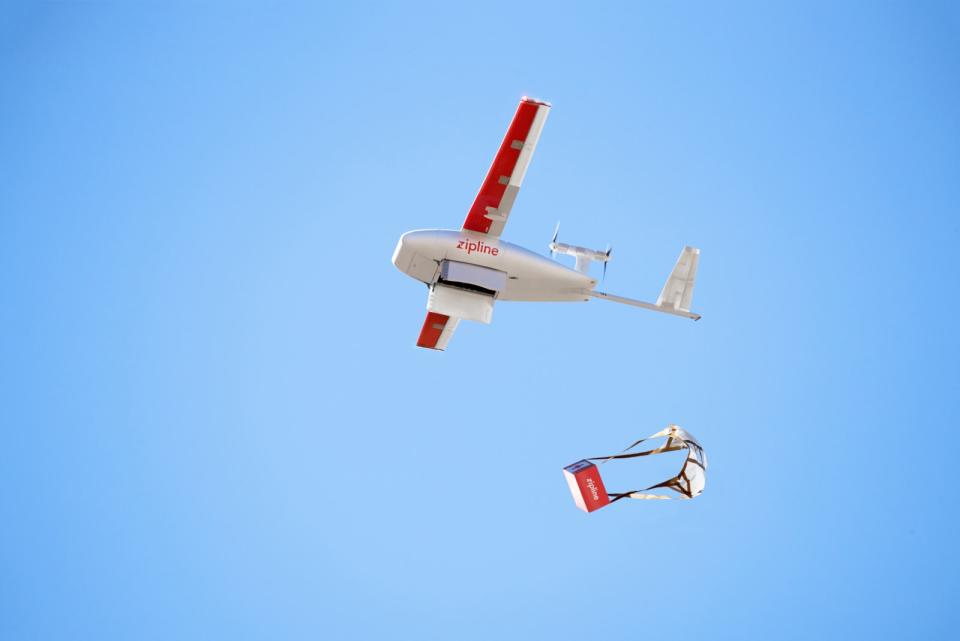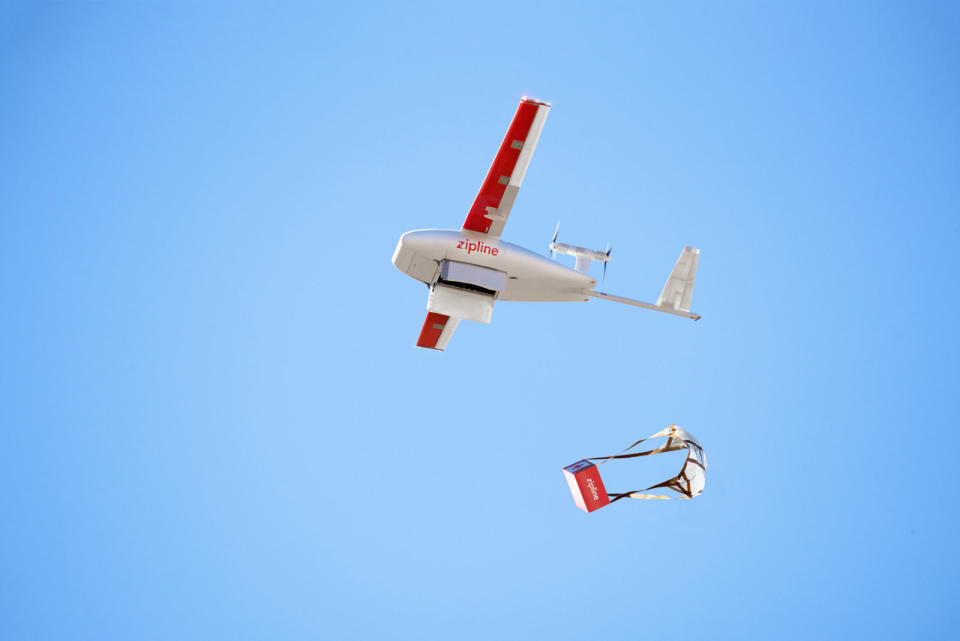Zipline expands medical drone deliveries to Ghana
Vaccines for polio, tetanus and diptheria will be airdropped to remote locations within 30 minutes.
While the jury on consumer drones is still out, unmanned aerial vehicles (UAVs) are fast becoming an important tool in global delivery networks. Take Zipline as a prime example: since 2016, the Californian company has used unmanned aircraft to deliver critical medicines and blood to hospitals over huge distances in Rwanda.
According to the Financial Times, the Silicon Valley startup is drastically expanding its presence in Africa, mobilzing what will become the world's largest drone delivery network to transport "150 different medicines," vaccines and blood to 2,000 clinics in remote parts of Ghana.
Vaccines for polio, tetanus and diptheria -- all of which are supplied by the World Health Organisation's Expanded Project on Immunisation -- will be some of the treatments made available to Ghanian clinicians as part of the expansion. Health workers will be able to place an order via text message and receive a delivery via parachute within 30 minutes.
The range of the "Zip" drone hasn't changed much over the past two years -- averaging around 160 kilometers. The aircraft is swift, however, reaching speeds of 110km per hour. Given that local hospitals can be remote and often lack adequate supplies of critical treatments, Zipline can provide a service that doesn't require new infrastructure or setting up new supply routes.
"What this is going to show is that you can reach every GPS co-ordinate, you can serve everybody," Zipline CEO Keller Rinaudo told the Financial Times. "Every human in that region or country [can be] within a 15-25 minute delivery of any essential medical product — it's a different way of thinking about universal coverage."



